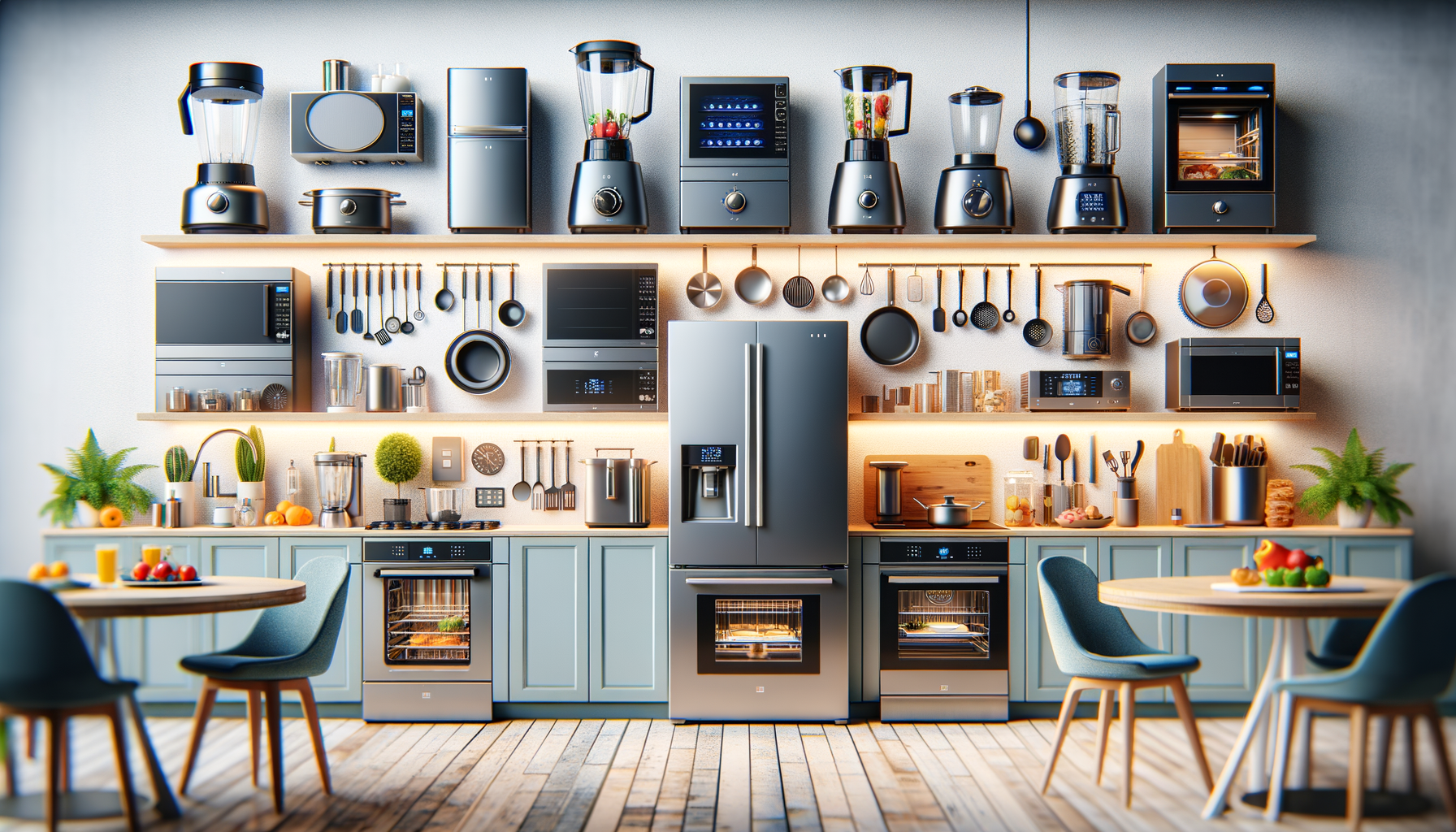The Evolution of Kitchen Appliances
Kitchen appliances have come a long way from their humble beginnings. Initially, the kitchen was a place of laborious tasks, with manual tools dominating the scene. However, as technology advanced, so did the convenience of kitchen gadgets. The introduction of electricity into homes marked a significant turning point. With electric stoves and refrigerators, the efficiency of kitchen tasks improved dramatically. Fast forward to today, and we see a plethora of smart appliances that not only save time but also enhance the cooking experience.
Modern kitchen appliances are designed with the user in mind, focusing on energy efficiency, safety, and ease of use. For instance, induction cooktops have gained popularity due to their energy-saving capabilities and precise temperature control. Additionally, appliances now come with connectivity features, allowing users to control them remotely via smartphones. This evolution reflects a broader trend towards making kitchens more adaptable to the fast-paced lifestyle of modern society.
Smart Technologies in the Kitchen
The integration of smart technology in kitchen appliances has revolutionized how we approach cooking and food storage. Smart refrigerators, for example, offer features like inventory tracking and expiration date alerts, which help in reducing food waste. These appliances can also suggest recipes based on the ingredients available, making meal planning more efficient.
Voice-activated assistants have found their way into the kitchen, allowing users to set timers, convert measurements, and even control other smart devices hands-free. This is particularly useful when multitasking or when hands are occupied with food preparation. Furthermore, smart ovens can be preheated remotely, ensuring that they’re ready to use by the time you get home. These innovations not only enhance convenience but also promote a more organized and efficient kitchen environment.
Energy Efficiency and Sustainability
As environmental concerns grow, energy efficiency has become a critical factor in the design of kitchen appliances. Manufacturers are increasingly focusing on reducing the carbon footprint of their products. Energy-efficient appliances not only help in conserving resources but also reduce utility bills, making them a cost-effective choice for consumers.
For instance, dishwashers with eco-friendly settings use less water and energy, while energy-efficient refrigerators are designed to maintain optimal temperatures with minimal power consumption. Additionally, induction cooktops are known for their ability to heat food quickly and evenly, using less energy than traditional gas or electric stoves. By choosing energy-efficient appliances, consumers can contribute to a more sustainable future while enjoying the benefits of reduced energy costs.
Design and Aesthetics
While functionality is paramount, the design and aesthetics of kitchen appliances also play a significant role in their appeal. Today’s consumers are looking for appliances that not only perform well but also complement their kitchen’s decor. This has led to a rise in the availability of sleek, modern designs that fit seamlessly into contemporary kitchen spaces.
Stainless steel remains a popular choice for its durability and timeless appeal, while color options allow for personalization and style. Many appliances now feature minimalist designs with touch controls and digital displays, adding to their modern aesthetic. Moreover, built-in appliances offer a streamlined look, creating a cohesive and clutter-free kitchen environment.
Future Trends in Kitchen Appliances
Looking ahead, the future of kitchen appliances is likely to be shaped by ongoing technological advancements and changing consumer preferences. We can expect to see more appliances with artificial intelligence capabilities, which will further enhance their functionality and user experience. These AI-driven appliances could offer personalized cooking suggestions and adapt to individual cooking habits over time.
Moreover, sustainability will continue to be a driving force, with manufacturers exploring new materials and technologies to reduce environmental impact. The concept of a smart kitchen, where all appliances are interconnected and can communicate with each other, is becoming more of a reality. This will lead to even greater efficiencies and convenience in the kitchen, making it an exciting space to watch in the coming years.



Leave a Reply